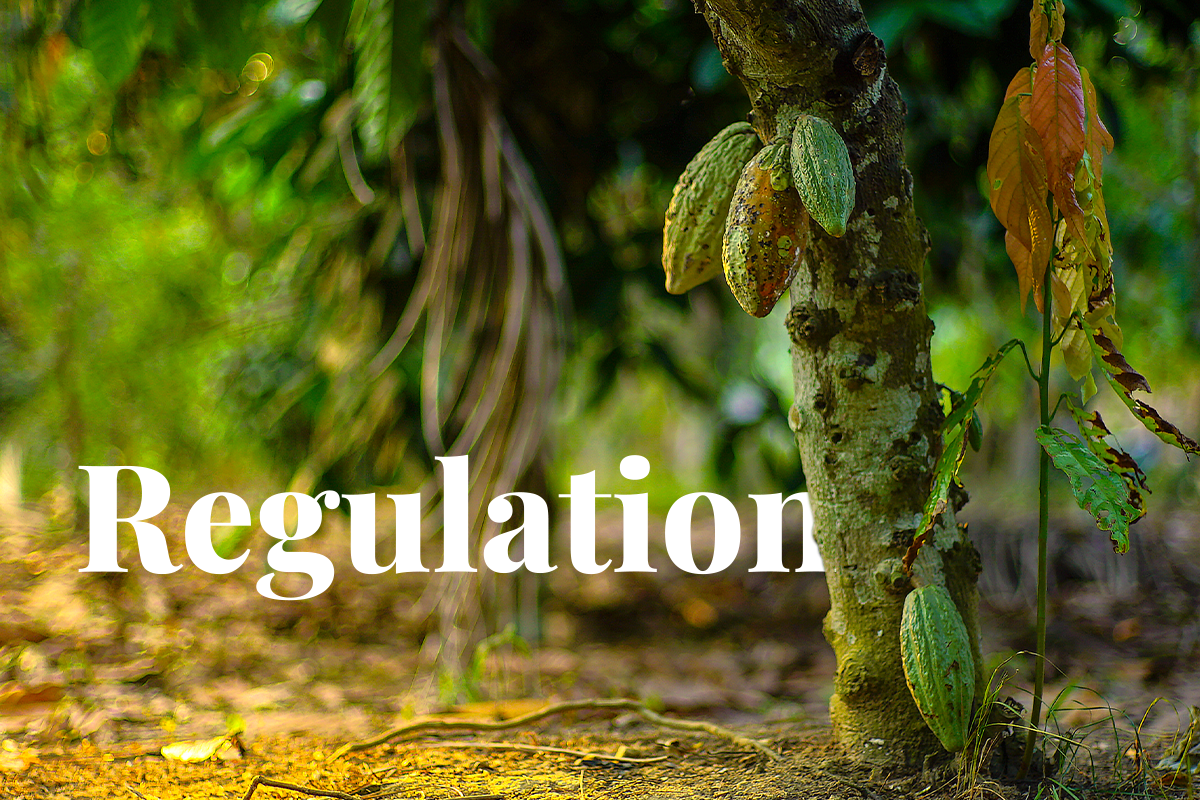The European Parliament passed a new law on 19 April 2023 to fight deforestation and forest degradation. We mentioned this new law while it was in the works, but after its adoption, a few significant additions broadened the scope of the regulation. It covers a range of commodities, including cattle, cocoa, coffee, palm oil, soya, wood, rubber, charcoal, and printed paper products. The legislation ensures that companies selling products in the European Union (EU) confirm they have not contributed to deforestation or forest degradation and that human rights and the rights of indigenous people have been respected.
 Cacao tree.
Cacao tree.
While no specific country or commodity will be banned, companies will only be allowed to sell products in the EU if the supplier of the product confirms the product does not come from deforested land or has led to forest degradation since 31 December 2020.
The products covered by the new legislation are cattle, cocoa, coffee, palm oil, soya, and wood, including derivative products that contain, have been fed with, or have been made using these commodities (such as leather, chocolate, and furniture). During negotiations, members of the European Parliament successfully added rubber, charcoal, printed paper products, and a number of palm oil derivatives.
The law includes a broader definition of forest degradation that consists of the conversion of primary forests or naturally regenerating forests into plantation forests or other wooded lands. The European Commission will classify countries as low, standard, or high-risk based on an objective and transparent assessment within 18 months of the regulation coming into force.
Read more: EU to upgrade carbon market and introduce carbon import tax
The EU authorities will have access to relevant information provided by companies, such as geolocation coordinates, and conduct checks with the help of satellite monitoring tools and DNA analysis to check where products come from. Penalties for non-compliance shall be proportionate and dissuasive. The maximum fine must be at least 4% of the total annual turnover of the non-compliant operator or trader in the EU.
Efforts to stop deforestation are significant at all levels, from new legislation passed to consumer awareness. However, these efforts must be accompanied by actionable strategies to reverse the effects of deforestation that already occurred. That is why DGB’s large-scale afforestation and reforestation projects are a key answer to the need for immediate action. Our projects help to restore nature where it is needed the most, involving all relevant stakeholders, from communities to investors.
You can get involved too—contact our experts



